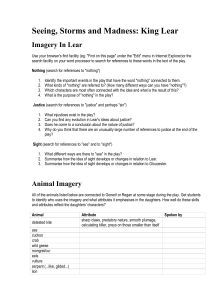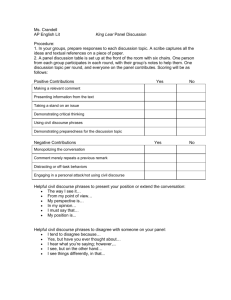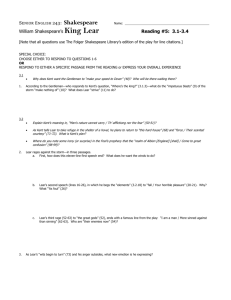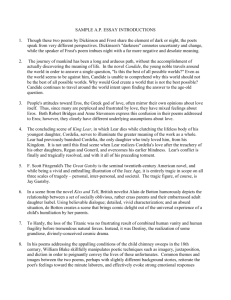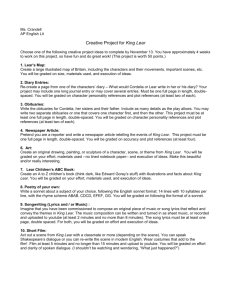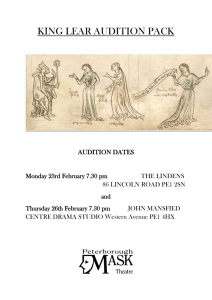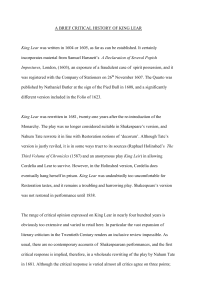King Lear: Symbolism and Imagery Study Guide
advertisement
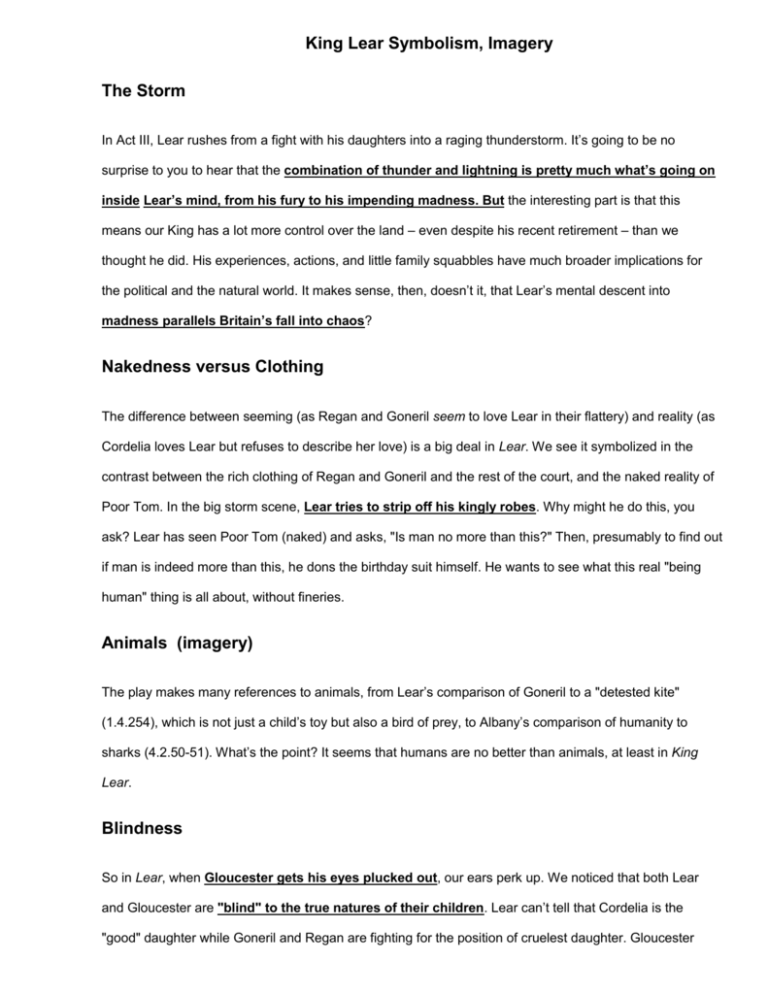
King Lear Symbolism, Imagery The Storm In Act III, Lear rushes from a fight with his daughters into a raging thunderstorm. It’s going to be no surprise to you to hear that the combination of thunder and lightning is pretty much what’s going on inside Lear’s mind, from his fury to his impending madness. But the interesting part is that this means our King has a lot more control over the land – even despite his recent retirement – than we thought he did. His experiences, actions, and little family squabbles have much broader implications for the political and the natural world. It makes sense, then, doesn’t it, that Lear’s mental descent into madness parallels Britain’s fall into chaos? Nakedness versus Clothing The difference between seeming (as Regan and Goneril seem to love Lear in their flattery) and reality (as Cordelia loves Lear but refuses to describe her love) is a big deal in Lear. We see it symbolized in the contrast between the rich clothing of Regan and Goneril and the rest of the court, and the naked reality of Poor Tom. In the big storm scene, Lear tries to strip off his kingly robes. Why might he do this, you ask? Lear has seen Poor Tom (naked) and asks, "Is man no more than this?" Then, presumably to find out if man is indeed more than this, he dons the birthday suit himself. He wants to see what this real "being human" thing is all about, without fineries. Animals (imagery) The play makes many references to animals, from Lear’s comparison of Goneril to a "detested kite" (1.4.254), which is not just a child’s toy but also a bird of prey, to Albany’s comparison of humanity to sharks (4.2.50-51). What’s the point? It seems that humans are no better than animals, at least in King Lear. Blindness So in Lear, when Gloucester gets his eyes plucked out, our ears perk up. We noticed that both Lear and Gloucester are "blind" to the true natures of their children. Lear can’t tell that Cordelia is the "good" daughter while Goneril and Regan are fighting for the position of cruelest daughter. Gloucester can’t tell that Edmund has manipulated him into falsely accusing his own good son, Edgar. Then there’s the case of hidden identities. Even before he loses his eyes, Gloucester can’t tell that Poor Tom is his son. Even worse, after Kent tells Lear that he’s Kent, Lear is so mentally obscured by his madness and grief that he doesn’t truly recognize his loyal friend.

